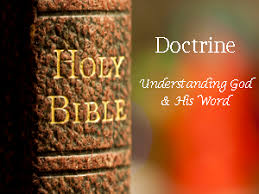The twelth in a series of 17 sermons
Series Theme
This series of sermon follow the articles of the Belgic Confession to present an bird’s eye view of the main doctrines of the Bible.
Readings reproduced on this page:
The Holy Bible: New International Version. 1996, 1984. Grand Rapids: Zondervan
Readings
Belgic Confession
Article 14: The Creation and Fall of Man
We believe that God created man from the dust of the earth and made and formed him in His image and likeness__ good, just, and holy; able by his own will to conform in all things to the will of God. But when he was in honour he did not understand it 21 and did not recognise his excellence.
But he subjected himself willingly to sin and consequently to death and the curse, lending his ear to the voice of the devil. For he transgressed the commandment of life, which he had received, and by his sin he separated himself from God, who was his true life, having corrupted his entire nature.
So he made himself guilty and subject to physical and spiritual death, having become wicked, perverse, and corrupt in all his ways. He lost all his excellent gifts which he had received from God, and he retained none of them except for small traces which are enough to make him inexcusable.
Moreover, all the light in us is turned to darkness, as the Scripture teaches us: “The light shone in the darkness, and the darkness did not receive it.”22 Here John calls men “darkness.”
Therefore we reject everything taught to the contrary concerning man’s free will, since man is nothing but the slave of sin and cannot do a thing unless it is “given him from heaven.”23
For who can boast of being able to do anything good by himself, since Christ says, “No one can come to Me unless My Father who sent Me draws him?”24 Who can glory in his own will when he understands that “the mind of the flesh is enmity against God?”25 Who can speak of his own knowledge in view of the fact that “the natural man does not understand the things of the Spirit of God?”26
In short, who can produce a single thought, since he knows that we are “not able to think a thing” about ourselves, by ourselves, but that “our ability is from God?”27 And therefore, what the apostle says ought rightly to stand fixed and firm: “God works within us both to will and to do according to His good pleasure.”28 For there is no understanding nor will conforming to God’s understanding and will apart from Christ’s involvement, as He teaches us when He says, “Without Me you can do nothing.”29
21. Psalm 49:20
22. John 1:5
23. John 3:27
24. John 6:44
25. Romans 8:7
26. 1 Corinthians 2:14
27. 2 Corinthians 3:5
28. Philippians 2:13
29. John 15:5
Text
1 Corinthians 2:10–16 (NIV84)
10but God has revealed it to us by his Spirit. The Spirit searches all things, even the deep things of God.
11For who among men knows the thoughts of a man except the man’s spirit within him? In the same way no one knows the thoughts of God except the Spirit of God.
12We have not received the spirit of the world but the Spirit who is from God, that we may understand what God has freely given us.
13This is what we speak, not in words taught us by human wisdom but in words taught by the Spirit, expressing spiritual truths in spiritual words.
14The man without the Spirit does not accept the things that come from the Spirit of God, for they are foolishness to him, and he cannot understand them, because they are spiritually discerned.
15The spiritual man makes judgments about all things, but he himself is not subject to any man’s judgment:
16“For who has known the mind of the Lord that he may instruct him?” But we have the mind of Christ.



